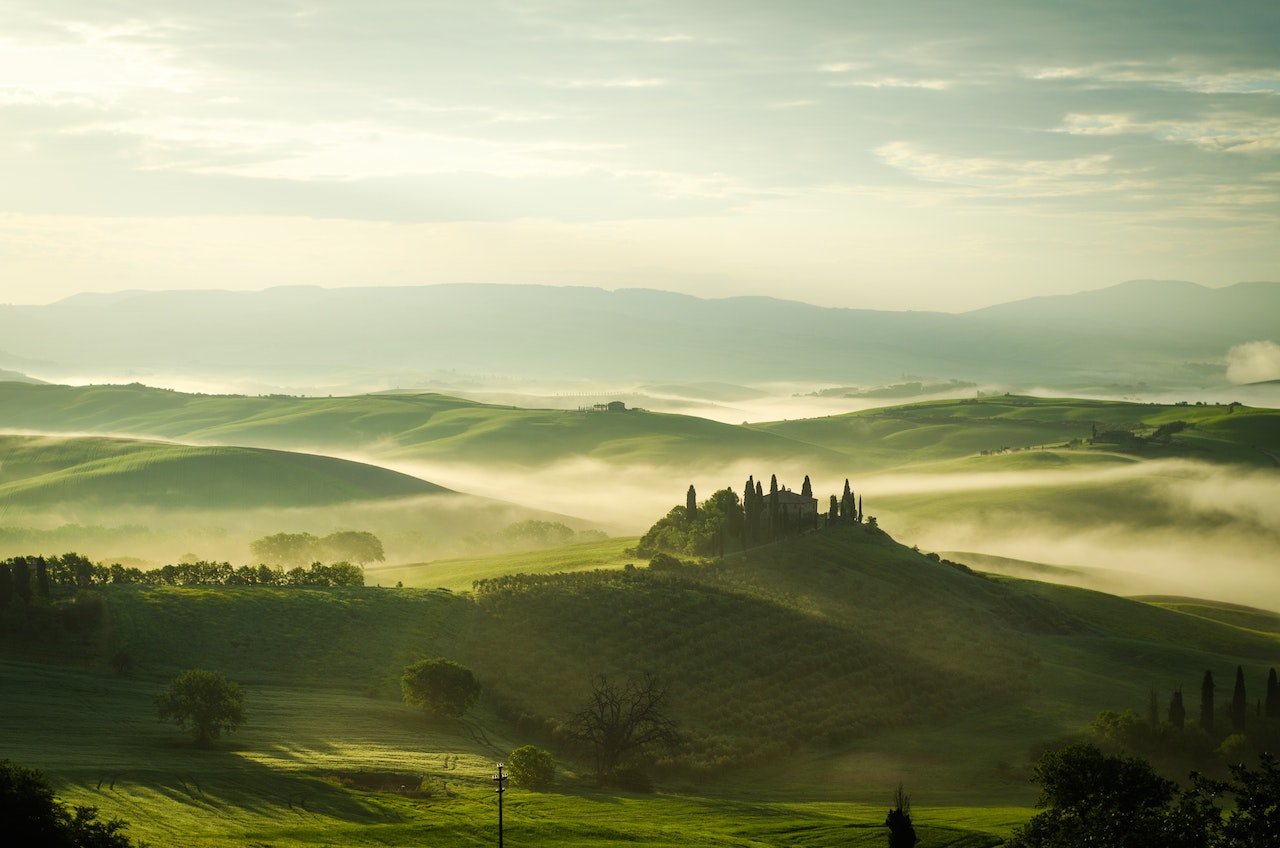The Italian countryside is a picturesque and serene setting that attracts visitors from all over the world. With its rolling hills, sprawling vineyards, and quaint farmhouses, it offers a glimpse into the traditional way of life in Italy. The countryside is also home to many historic landmarks, including ancient castles, churches, and monuments that tell the story of Italy’s rich cultural heritage.
One of the most popular destinations in the Italian countryside is Tuscany, known for its stunning landscapes and charming hilltop towns. Visitors can explore the region’s famous wineries, sample delicious local cuisine, and soak up the sun amidst the beautiful scenery. Other regions, such as Umbria and Puglia, offer their own unique attractions, including historic cities, stunning beaches, and natural wonders like national parks and lakes.
Whether you’re looking for a quiet retreat or an adventure-filled vacation, the Italian countryside has something to offer everyone. With its rich history, beautiful landscapes, and vibrant culture, it’s no wonder that it continues to be a top destination for travelers around the world.
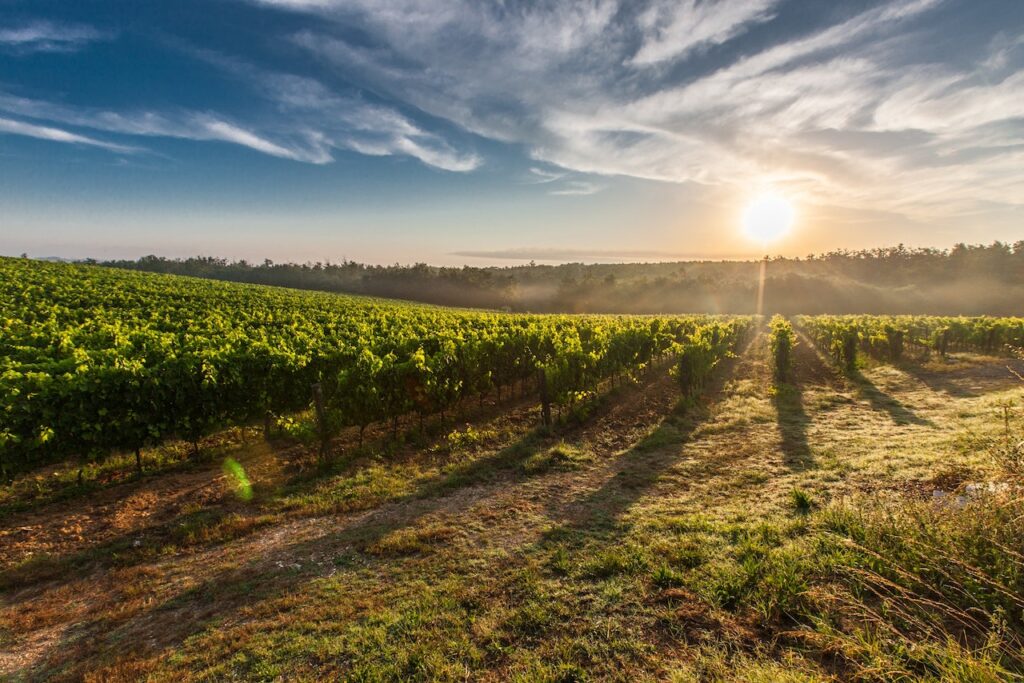
The Beauty of the Italian Countryside
The Italian countryside is renowned for its natural beauty, world-famous landmarks, picturesque towns, and panoramic views. The rolling hills, verdant vineyards, and sunflower fields that stretch as far as the eye can see are a testament to the country’s idyllic charm.
One of the most famous regions in Italy is Tuscany, which boasts a landscape of cypress trees, olive groves, and vineyards that have inspired countless artists and photographers. The region is dotted with charming hilltop towns, such as San Gimignano and Montepulciano, which offer stunning views of the surrounding countryside.
Another iconic destination is the Amalfi Coast, which is known for its dramatic cliffs, turquoise waters, and colorful villages. The towns of Positano, Amalfi, and Ravello are particularly popular among visitors, who come to marvel at the region’s natural beauty and enjoy the Mediterranean lifestyle.
In addition to its natural wonders, Italy is also home to world-famous landmarks, such as the Colosseum, the Leaning Tower of Pisa, and the Vatican City. These historic sites are not only impressive feats of architecture and engineering, but they also offer a glimpse into Italy’s rich cultural heritage.
Overall, the Italian countryside is a treasure trove of beauty, history, and culture. Whether you’re exploring the rolling hills of Tuscany, the dramatic coastline of the Amalfi Coast, or the iconic landmarks of Rome, you’re sure to be captivated by the country’s charm and allure.
Exploring Regions in the Countryside
Italy’s countryside is a treasure trove of stunning landscapes, rich history, and delicious food. From the rolling hills of Tuscany to the rugged mountains of Abruzzo, there’s no shortage of regions to explore. Here are some of the top regions to visit in Italy’s countryside:
Tuscany
Tuscany is perhaps the most famous region in Italy’s countryside, and for good reason. Its picturesque landscapes, charming towns, and world-class wines make it a must-visit destination. Visitors can explore the medieval city of Siena, admire the art in Florence, and sample the local Chianti wine.
Umbria
Umbria is often called the “green heart of Italy” due to its lush forests and rolling hills. This region is home to beautiful medieval towns like Perugia and Assisi, as well as stunning natural attractions like Lake Trasimeno. Visitors can also sample Umbria’s famous black truffles and olive oil.
Marche
Marche is a lesser-known region that offers a more off-the-beaten-path experience. Its rugged coastline, medieval hill towns, and natural parks make it a great destination for nature lovers. Visitors can explore the historic city of Urbino, hike in the Sibillini Mountains, and sample the region’s delicious seafood.
Abruzzo
Abruzzo is a region of dramatic contrasts, with rugged mountains, sandy beaches, and rolling hills. Visitors can explore the medieval town of L’Aquila, hike in the Gran Sasso National Park, and sample the region’s famous Montepulciano d’Abruzzo wine.
Piedmont
Piedmont is a region known for its elegant wines and delicious cuisine. Visitors can explore the historic city of Turin, sample the region’s famous Barolo wine, and indulge in local specialties like truffles and hazelnuts.
Liguria
Liguria is a region of rugged coastline, charming fishing villages, and delicious seafood. Visitors can explore the colorful town of Cinque Terre, hike in the Portofino Natural Park, and sample the region’s famous pesto sauce.
Veneto
Veneto is a region known for its stunning architecture, world-class wines, and beautiful countryside. Visitors can explore the historic city of Venice, sample the region’s famous Prosecco wine, and hike in the Dolomite Mountains.
Puglia
Puglia is a region known for its whitewashed towns, stunning coastline, and delicious cuisine. Visitors can explore the Baroque city of Lecce, relax on the beaches of Salento, and sample local specialties like burrata cheese and orecchiette pasta.
Sicily
Sicily is a region of stunning landscapes, ancient ruins, and delicious food. Visitors can explore the historic city of Palermo, hike on Mount Etna, and sample the region’s famous cannoli and arancini.
Central Italy
Central Italy is a region of rolling hills, charming towns, and rich history. Visitors can explore the medieval city of Perugia, admire the art in Florence, and sample the region’s famous Brunello di Montalcino wine.
Overall, Italy’s countryside is a treasure trove of stunning landscapes, rich history, and delicious food. Whether you’re looking for a relaxing vacation or an adventurous getaway, there’s a region in Italy’s countryside that’s perfect for you.
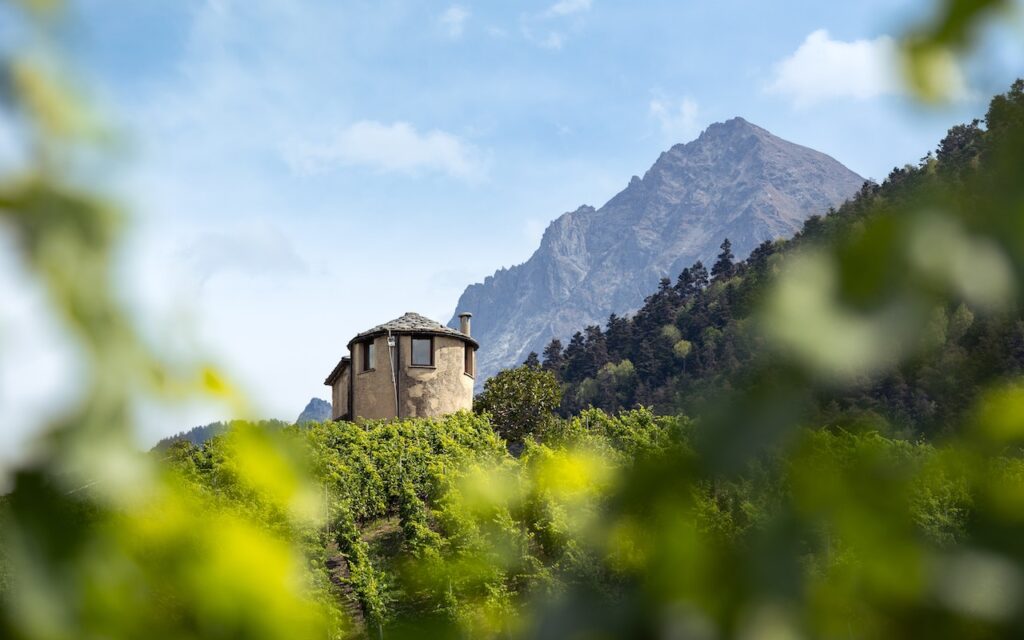
Historical and Cultural Significance
Art and Architecture
The Italian countryside boasts an impressive collection of art and architecture that spans centuries. From the intricate mosaics of Ravenna to the stunning frescoes of Florence, the countryside is a treasure trove of artistic masterpieces. The country’s rich history is reflected in the art and architecture of its many churches, palaces, and museums. Visitors can marvel at the Gothic architecture of the Milan Cathedral, or admire the Renaissance beauty of the Palazzo Pitti in Florence. The countryside is also home to many art museums, including the Uffizi Gallery in Florence and the Pinacoteca di Brera in Milan.
Medieval Villages
The Italian countryside is dotted with charming medieval villages that offer a glimpse into the country’s rich history. These villages are often perched on hilltops, offering stunning views of the surrounding countryside. Visitors can wander through the narrow streets and alleys, admiring the ancient buildings and churches. Some of the most beautiful medieval villages in Italy include San Gimignano, Montepulciano, and Orvieto.
World Heritage Sites
Italy is home to many UNESCO World Heritage Sites, and many of them are located in the countryside. These sites include the historic city of Rome, the stunning Amalfi Coast, and the picturesque Cinque Terre. Visitors can explore the ancient ruins of Pompeii, or marvel at the stunning beauty of the Dolomites. The countryside is also home to many beautiful gardens and parks, including the Villa d’Este in Tivoli and the Boboli Gardens in Florence.
In conclusion, the Italian countryside is a treasure trove of history, art, and culture. Visitors can explore medieval villages, admire stunning architecture, and marvel at the country’s many UNESCO World Heritage Sites.
Experiencing the Italian Countryside
The Italian countryside is a beautiful and relaxing place to visit. With its rolling hills, vineyards, and picturesque towns, it’s the perfect place to get away from the hustle and bustle of city life. Here are some of the best ways to experience the Italian countryside.
Food and Wine
One of the highlights of visiting the Italian countryside is the food and wine. The region is known for its delicious cuisine, and visitors can try everything from fresh pasta to local cheeses. There are also many vineyards in the area, where visitors can sample some of the best wines in the world. Some of the most popular wine regions include Tuscany, Piedmont, and Umbria.
Accommodation
There are many different types of accommodation available in the Italian countryside. Visitors can choose from cozy bed and breakfasts, rustic farmhouses, and luxurious villas. Many of these properties are located in remote areas, offering visitors a chance to truly escape from the world. Some of the most popular areas for accommodation include the Chianti region in Tuscany and the Amalfi Coast.
Outdoor Activities
The Italian countryside is also a great place for outdoor activities. Visitors can go hiking in the mountains, relax on the beaches, or explore the valleys and lakes. There are many different trails to choose from, ranging from easy walks to more challenging hikes. Some of the most popular areas for outdoor activities include the Dolomites, the Cinque Terre, and Lake Como.
Overall, the Italian countryside is a wonderful place to visit for those looking to experience the beauty and tranquility of rural Italy. Whether you’re interested in food and wine, accommodation, or outdoor activities, there’s something for everyone to enjoy.
Italian Countryside Homes
Italy is home to some of the most beautiful countryside homes in the world. These homes offer a perfect blend of rustic charm and modern amenities, making them an ideal choice for those looking for a peaceful retreat away from the hustle and bustle of city life.
Villas
Villas are a popular choice for those looking for a luxurious countryside home. These properties often come with spacious gardens, swimming pools, and stunning views of the surrounding countryside. Many villas also offer a range of amenities such as tennis courts, gyms, and spas.
Farmhouses
Farmhouses are another popular option for those looking for a countryside home in Italy. These properties offer a more rustic charm, often featuring exposed brickwork, wooden beams, and traditional Italian architecture. Many farmhouses also come with large gardens and outdoor spaces, making them perfect for those who love to entertain.
Unique Properties
For those looking for something truly unique, there are a range of properties available in the Italian countryside. These include converted barns, castles, and even monasteries. These properties offer a unique blend of history and luxury, making them a popular choice for those looking for something truly special.
When it comes to amenities, many countryside homes in Italy come with swimming pools, outdoor dining areas, and spacious gardens. Some properties even come with their own farms, offering a range of fresh produce and organic meats.
Overall, the Italian countryside offers a range of beautiful homes and properties for those looking for a peaceful retreat. Whether you’re looking for a luxurious villa or a rustic farmhouse, there’s something for everyone in this stunning part of the world.
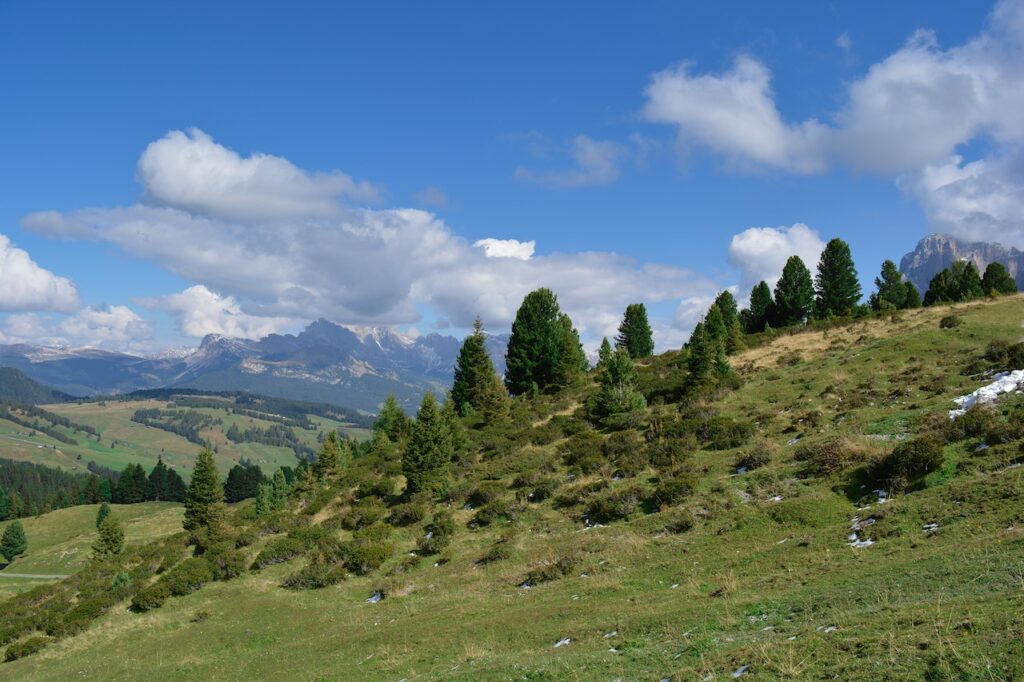
Flora and Fauna
The Italian countryside is renowned for its diverse flora and fauna. The region boasts a rich variety of plant and animal life, which is a testament to the country’s natural beauty and ecological diversity.
The countryside is home to a wide range of plant species, including various types of olive trees, cypress trees, and other Mediterranean flora. Olive groves are a ubiquitous sight in the Italian countryside, and the region is one of the world’s largest producers of olive oil. These groves are carefully tended to by local farmers, who carefully cultivate the trees to ensure a high-quality yield.
The olive groves are also home to a variety of wildlife, including birds, insects, and small mammals. These creatures play an important role in maintaining the ecological balance of the region, and are a vital part of the local ecosystem.
In addition to olive groves, the Italian countryside is also home to a variety of gardens and other cultivated areas. These gardens are carefully tended to by local gardeners, who use a variety of techniques to cultivate a wide range of plant species.
Overall, the Italian countryside is a haven for both flora and fauna. The region’s rich biodiversity is a testament to the country’s natural beauty and ecological diversity, and is a source of pride for its inhabitants.
The Italian Countryside through the Seasons
Italy’s countryside is a beautiful and diverse landscape that changes with the seasons. From the rolling hills of Tuscany to the rugged mountains of the Dolomites, there is something for everyone to enjoy.
In the summer, the beaches along the Italian coastline are a popular destination for both locals and tourists. The crystal-clear waters of the Mediterranean Sea provide the perfect backdrop for sunbathing, swimming, and water sports. The beaches can get crowded during peak season, but there are plenty of hidden coves and secluded spots to discover.
As autumn approaches, the countryside is transformed by the changing colors of the leaves. The Apennine Mountains offer breathtaking views of the fall foliage, and the rivers that flow through the valleys are perfect for fishing and kayaking. The cooler weather is also ideal for hiking and exploring the many trails that wind through the hills.
In the winter, the Italian Alps and Dolomites are a winter wonderland. Ski resorts like Cortina d’Ampezzo and Madonna di Campiglio offer world-class skiing and snowboarding, as well as stunning views of the snow-covered mountains. The Apennine Mountains also have ski resorts, but they are smaller and less crowded than those in the Alps.
As spring arrives, the countryside bursts into bloom with wildflowers and blossoming trees. The hills are covered in a carpet of green, and the rivers and streams are filled with fresh snowmelt. It’s the perfect time to explore the countryside on foot or by bike, and to discover the many charming villages and towns that dot the landscape.
Overall, the Italian countryside offers something for everyone, no matter what the season. Whether you’re looking for adventure, relaxation, or just a change of scenery, there is always something new to discover in this beautiful and diverse landscape.
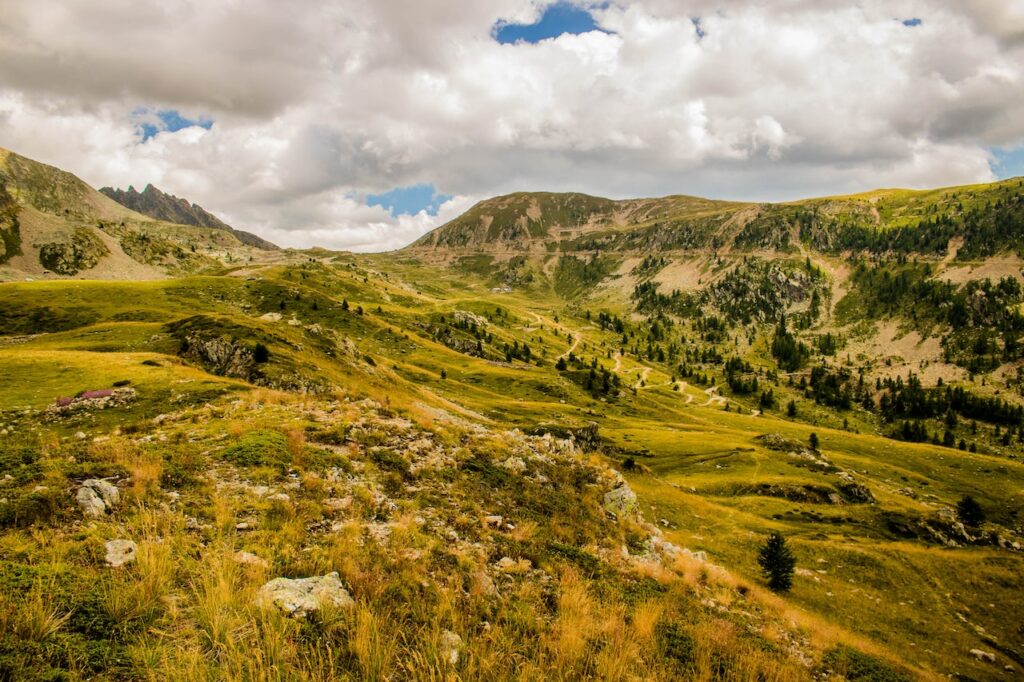
Cities and Towns in the Countryside
Florence
Florence is a city in the Tuscany region of Italy, known for its rich history, stunning architecture, and world-class art. The city is home to many famous landmarks, including the Duomo, the Uffizi Gallery, and the Ponte Vecchio. Visitors to Florence can explore the city’s many museums, galleries, and churches, or simply wander the streets and take in the sights and sounds of this beautiful city.
Siena
Siena is a medieval city located in the heart of Tuscany. The city is famous for its historic architecture, including the Piazza del Campo and the Palazzo Pubblico. Visitors to Siena can also explore the city’s many museums, art galleries, and churches, or simply wander the narrow streets and alleyways of this charming city.
Venice
Venice is a city built on water, famous for its canals, bridges, and stunning architecture. Visitors to Venice can explore the city’s many historic landmarks, including St. Mark’s Basilica, the Doge’s Palace, and the Rialto Bridge. The city is also known for its art and culture, with many museums and galleries showcasing the works of famous Venetian artists.
Rome
Rome is the capital city of Italy and one of the most famous cities in the world. The city is home to many famous landmarks, including the Colosseum, the Pantheon, and the Vatican. Visitors to Rome can explore the city’s many museums, galleries, and churches, or simply wander the streets and take in the sights and sounds of this historic city.
Naples
Naples is a city located in southern Italy, known for its rich history, stunning architecture, and delicious cuisine. The city is home to many famous landmarks, including the Royal Palace of Naples, the Castel dell’Ovo, and the Naples Cathedral. Visitors to Naples can also explore the city’s many museums, art galleries, and churches, or simply wander the streets and take in the sights and sounds of this vibrant city.
Perugia
Perugia is a city located in the Umbria region of Italy, known for its rich history, stunning architecture, and beautiful countryside. The city is home to many famous landmarks, including the Palazzo dei Priori, the Cathedral of San Lorenzo, and the Fontana Maggiore. Visitors to Perugia can also explore the city’s many museums, art galleries, and churches, or simply wander the streets and take in the sights and sounds of this charming city.
Assisi
Assisi is a town located in the Umbria region of Italy, famous for its connection to St. Francis of Assisi. The town is home to many famous landmarks, including the Basilica di San Francesco, the Basilica di Santa Chiara, and the Rocca Maggiore. Visitors to Assisi can also explore the town’s many museums, art galleries, and churches, or simply wander the streets and take in the sights and sounds of this peaceful town.
Montefalco
Montefalco is a town located in the Umbria region of Italy, known for its beautiful countryside and world-class wine. The town is home to many famous landmarks, including the Church of San Francesco, the Palazzo Comunale, and the Museo Civico. Visitors to Montefalco can also explore the town’s many vineyards and wineries, or simply enjoy the stunning views of the surrounding countryside.
Matera
Matera is a city located in the Basilicata region of Italy, famous for its ancient cave dwellings and stunning architecture. The city is home to many famous landmarks, including the Sassi di Matera, the Palombaro Lungo, and the Cathedral of Matera. Visitors to Matera can also explore the city’s many museums, art galleries, and churches, or simply wander the streets and take in the sights and sounds of this unique city.
Noto
Noto is a town located in the Sicily region of Italy, known for its stunning Baroque architecture and beautiful countryside. The town is home to many famous landmarks, including the Cathedral of San Nicolò, the Palazzo Ducezio, and the Church of Santa Chiara. Visitors to Noto can also explore the town’s many museums, art galleries, and churches, or simply enjoy the stunning views of the surrounding countryside.

